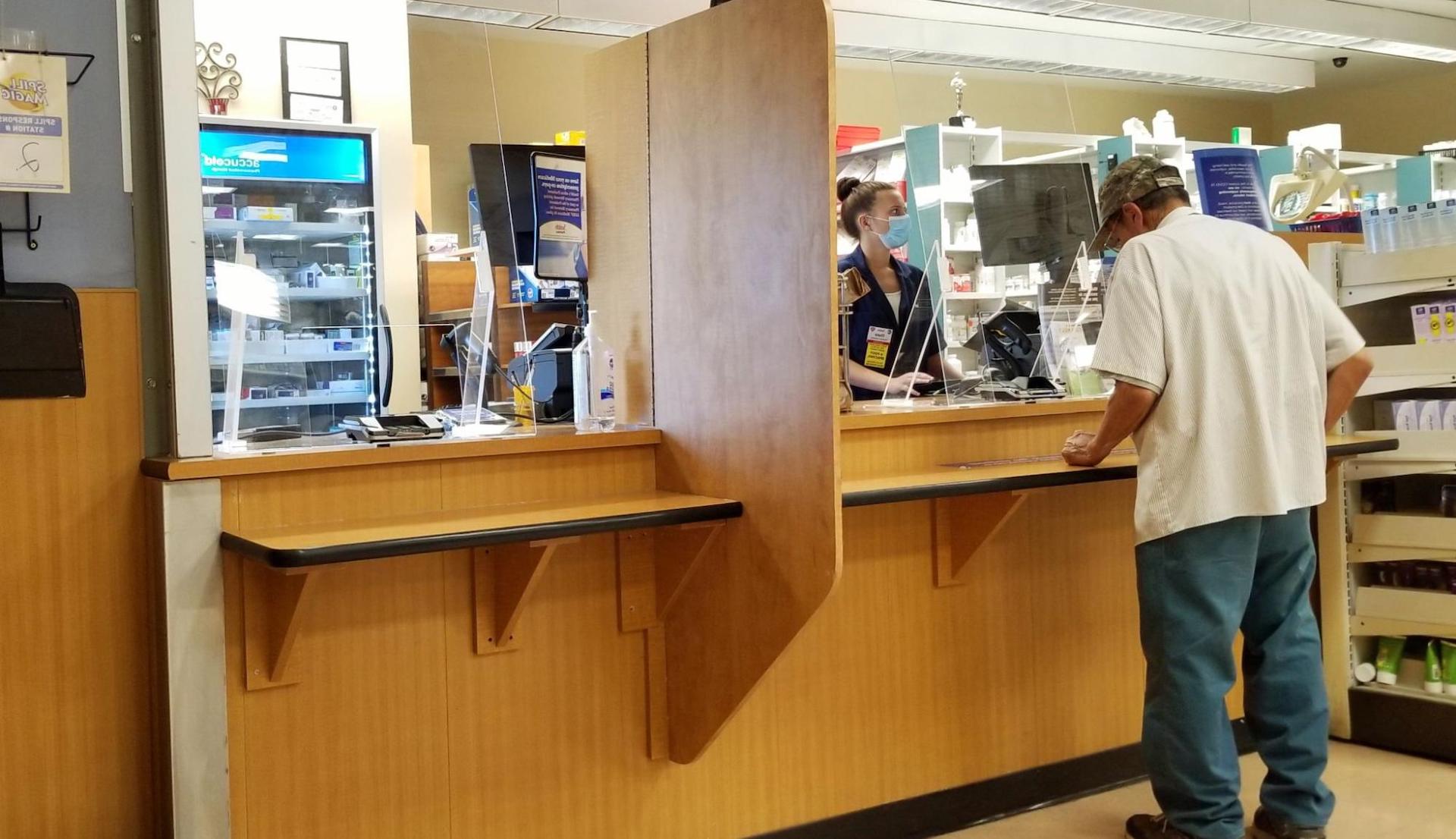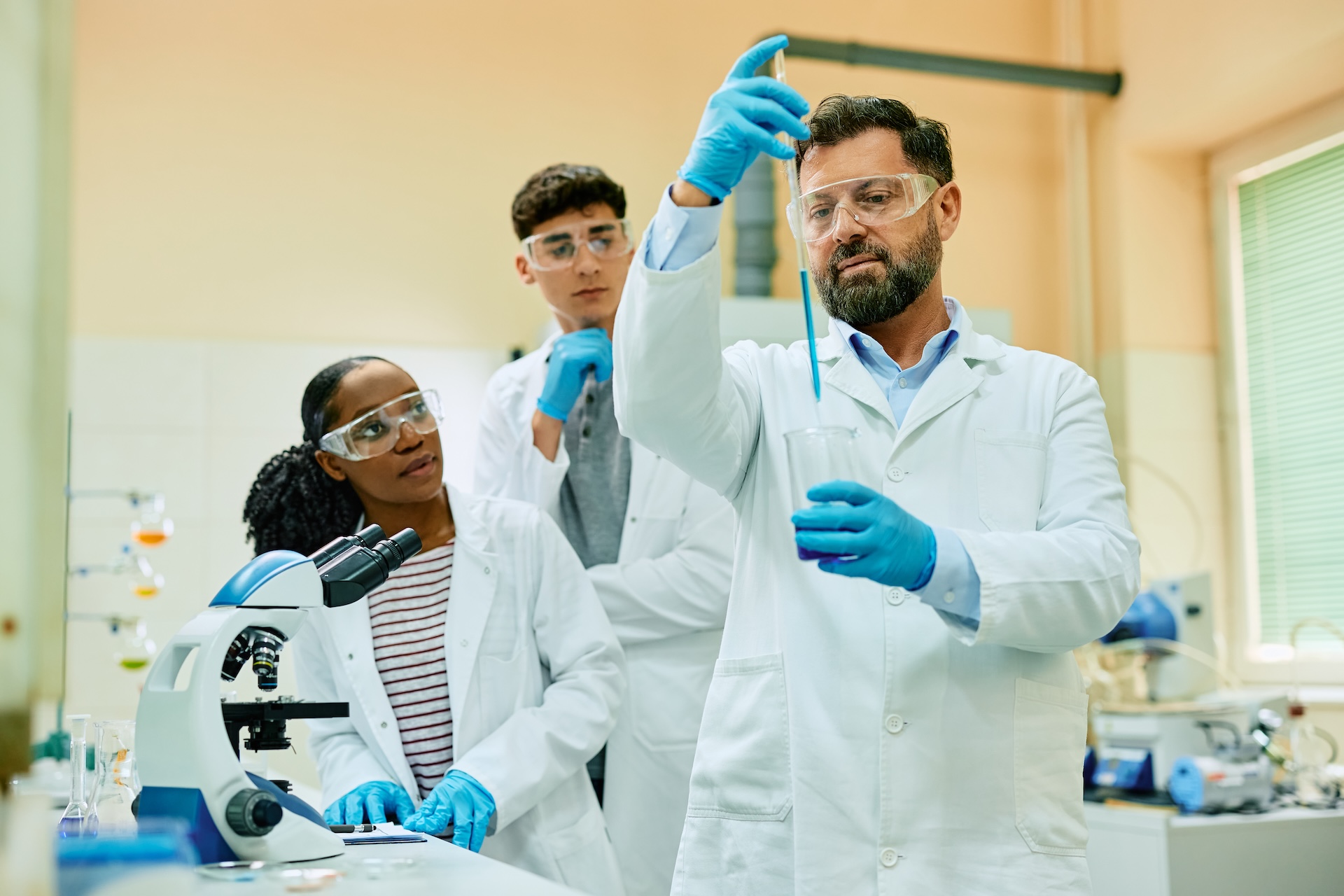
The Evolving Role of Pharmacy Education in Public Health: Empowering Pharmacists for a Healthier Future
In today’s rapidly changing healthcare landscape, the role of pharmacists has become increasingly vital in strengthening public health. As the healthcare industry faces numerous challenges, pharmacy education plays a crucial role in preparing future pharmacists to effectively address these issues. By equipping students with a comprehensive understanding of medications, patient care, and public health practices, pharmacy education programs are empowering pharmacists to become key players in improving public health outcomes.
Florida Pharmacy Foundation hopes to highlight the importance of strengthening public health through pharmacy education and the transformative impact it can have on communities across the globe.
The Expanding Role of Pharmacists
Current trends indicate a significant expansion in the role of pharmacists, with a greater emphasis on patient care, medication management, and interdisciplinary collaboration. As a result, pharmacists are poised to play a more integral part in the overall healthcare delivery system in the coming years.
The traditional role of pharmacists in dispensing medications and providing medication counseling is being augmented with new responsibilities and opportunities. Here are some key factors contributing to this expansion:
Patient Care Services
Pharmacists are increasingly involved in direct patient care. They collaborate with healthcare teams, conduct medication therapy management, review patient profiles, and provide personalized care plans. They play a crucial role in optimizing medication regimens and ensuring patient safety.
Chronic Disease Management
With the rise in chronic diseases such as diabetes, hypertension, and asthma, pharmacists are taking on a more active role in managing these conditions. They can monitor patients’ progress, provide education on lifestyle modifications, and adjust medication therapies as needed.
Medication Adherence
Poor medication adherence is a significant issue in healthcare. Pharmacists are well-positioned to address this challenge by counseling patients, identifying barriers to adherence, and implementing strategies to improve medication compliance.
Immunization Services
Pharmacists have increasingly been authorized to administer vaccinations. This expanded role has been particularly significant during the COVID-19 pandemic, where pharmacists have played a vital role in administering vaccines and educating the public about their benefits.
Collaborative Practice
Pharmacists are working more closely with other healthcare professionals, such as physicians, nurses, and nurse practitioners. This collaboration enhances patient care by facilitating interdisciplinary communication, medication reconciliation, and the integration of pharmacists’ expertise into treatment plans.
Specialized Areas
Pharmacists are diversifying into specialized areas such as geriatrics, oncology, pediatrics, and psychiatric pharmacy. This specialization allows them to acquire in-depth knowledge and provide specialized care to specific patient populations.
Research and Innovation
Pharmacists are increasingly involved in research, clinical trials, and innovation. They contribute to the development of new drugs, evaluate medication effectiveness, and explore novel approaches to drug therapy.
Pharmacy education must prepare future pharmacists to shoulder these important responsibilities and contribute in significant ways to improve public health outcomes.
The Role of Pharmacy Education in Public Health
Through rigorous curricula, students gain a deep understanding of medications, patient care, and public health principles. This knowledge allows pharmacists to play a crucial role in medication management, ensuring the safe and effective use of drugs. Pharmacy education also emphasizes patient care, teaching students how to assess and communicate with patients, identify medication-related problems, and provide appropriate interventions.
The integration of public health principles into the curriculum enables pharmacists to contribute to disease prevention and control. By understanding the social determinants of health and advocating for policy changes, pharmacists actively engage in health promotion activities.
The Impact of Pharmacy Education on Patient Outcomes
Pharmacy education has a significant impact on patient outcomes. Pharmacists, armed with the knowledge and skills acquired through their education, are uniquely positioned to improve medication adherence, reduce adverse drug reactions, and optimize therapeutic outcomes. Studies have consistently shown that pharmacist-led interventions, such as medication therapy management (MTM), significantly improve patient outcomes. These interventions involve pharmacists conducting comprehensive medication reviews, identifying and resolving drug-related problems, and providing education and counseling to patients.
Pharmacy education also enhances medication safety by training pharmacists to prevent and identify medication errors. By collaborating with other healthcare professionals, pharmacists contribute to a multidisciplinary approach to patient care, resulting in safer medication use and reduced harm. Moreover, pharmacists provide evidence-based information and counseling to patients, empowering them to take an active role in managing their health.
The Importance of Interprofessional Collaboration in Public Health
In the complex landscape of public health, collaboration among healthcare professionals is essential for addressing the multifaceted challenges faced by communities. Pharmacists, with their expertise in medications and patient care, play a vital role in interprofessional collaboration. By working together with physicians, nurses, public health officials, and other healthcare professionals, pharmacists contribute to comprehensive patient care and public health initiatives.
Interprofessional collaboration allows for the exchange of knowledge and ideas, leading to improved patient outcomes and more effective public health interventions. Pharmacists collaborate with physicians and nurses to optimize medication therapy, ensuring that patients receive the most appropriate and effective treatments. In public health initiatives, pharmacists work alongside public health officials to promote health education, disease prevention, and vaccination campaigns.
Interprofessional collaboration enables healthcare professionals to pool their resources and expertise, resulting in more efficient and impactful interventions. By breaking down professional silos, pharmacists contribute to the development of comprehensive, patient-centered care models that address the holistic needs of individuals and communities.
Innovations in Pharmacy Education for Public Health
To address the evolving healthcare landscape and emerging public health challenges, pharmacy education programs are continually innovating to prepare future pharmacists. These innovations are instrumental in equipping students with the skills and knowledge necessary to address public health issues effectively.
One innovation is the integration of technology into pharmacy education. Pharmacy education programs incorporate telemedicine, electronic health records, and mobile health applications into their curricula, allowing students to gain hands-on experience in utilizing these technologies to improve patient care and public health outcomes. Embracing technology ensures that pharmacy education remains aligned with the digital future of pharmacy practice.
Another innovation is the emphasis on experiential learning. Pharmacy education programs provide students with opportunities for hands-on learning through internships, clinical rotations, and community engagement. These experiences allow students to apply their knowledge in practical settings, develop critical thinking skills, and gain a deeper understanding of the social determinants of health. By immersing students in real-world experiences, pharmacy education programs prepare future pharmacists to address the complex public health challenges faced by communities.
Pharmacy education is also adopting a competency-based approach to learning and assessment. Rather than solely focusing on knowledge acquisition, competency-based education emphasizes the development of essential skills and abilities. Pharmacy education programs align curricula and assessments with core competencies, such as patient care, medication management, and public health advocacy. This approach ensures that students are equipped with the necessary skills to make a positive impact on public health.
Successful Public Health Initiatives Led by Pharmacy Educators
Pharmacy educators have led successful public health initiatives that have made a significant impact on communities. One example is medication therapy management (MTM) services. Through their leadership, pharmacy educators have successfully integrated MTM services into pharmacy practice, resulting in improved patient outcomes and reduced healthcare costs.
Another example is the promotion of vaccination campaigns, where pharmacy educators have championed the role of pharmacists in increasing access to vaccines and improving vaccination rates.
Pharmacy educators have also been at the forefront of addressing the opioid epidemic by developing and implementing opioid education programs. These initiatives highlight the transformative impact pharmacy educators can have on public health.
The Future of Pharmacy Education in Public Health
The future of pharmacy education in public health holds immense potential for improving population health outcomes. Pharmacy education programs are integrating public health principles, cultural competency, and interdisciplinary collaboration into their curricula. They are also embracing technology and digital health solutions while emphasizing lifelong learning. These advancements in pharmacy education will prepare future pharmacists to address the evolving public health landscape and contribute to the well-being of communities.
Conclusions
Pharmacy education is a critical component of strengthening public health. By equipping future pharmacists with comprehensive knowledge, skills, and a collaborative mindset, pharmacy education programs are empowering pharmacists to make a positive impact on patient outcomes and public health initiatives.
Through innovations in education, successful initiatives led by pharmacy educators, and a focus on the future of pharmacy education, the profession is poised to play an increasingly vital role in addressing the complex challenges faced by communities and improving population health outcomes.
Please help the Florida Pharmacy Foundation support pharmacy education and our future pharmacists. Learn about our campaigns and donate! ALL DONATIONS ARE TAX DEDUCTIBLE. Any amount is welcome. Thank you.



